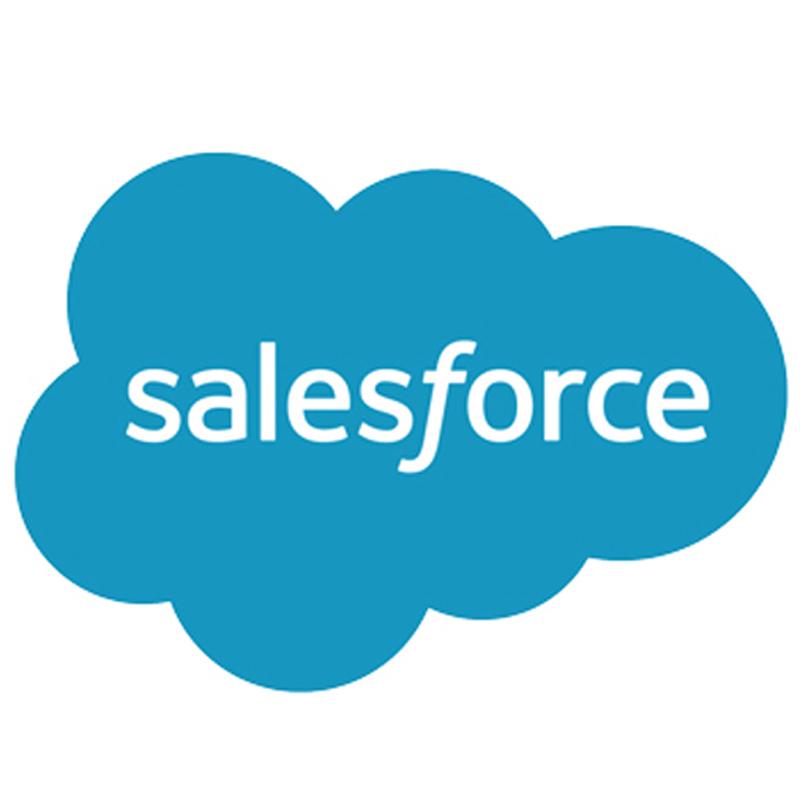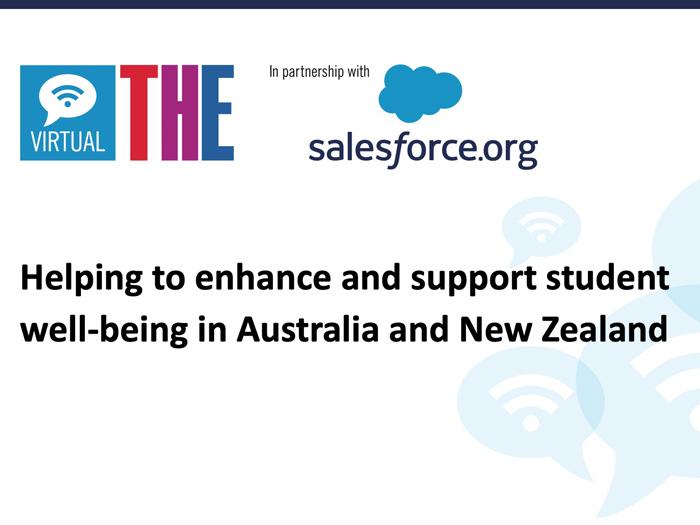
Delivering positive student experiences in ANZ through collaboration and digital transformation
At a webinar hosted by Times Higher Education in partnership with Salesforce.org, panellists discussed students’ changing expectations of higher education and how universities can meet students’ needs to deliver a positive experience.
Navneet Johal, director of education GTM at Salesforce.org, opened the session by highlighting the findings of the third edition of Salesforce’s Connected Student Report. The report found that students value a simple onboarding experience, holistic support throughout their studies, strong employability provisions, flexibility and diversity.
The panellists agreed that students were vocal about the importance of well-being. Johal highlighted that globally, “only 33 per cent of students said that they really feel their institution is trying hard on student well-being”. However, she said, “students in Australia are most likely to say that their institution places great importance on well-being”. Universities in Australia and New Zealand must continue to prioritise student well-being to ensure that cohorts have a positive experience.
Maryanne Dever, pro vice-chancellor (education and digital) at the Australian National University, stressed the need for universities to personalise student pathways. “I think it is very important as we come out of Covid to understand what it is we are offering to students in terms of student experience,” Dever said.
The panellists noted that students were increasingly concerned about diversity at their institutions. Dever said her institution has been working to “understand more about what students need when they do start to connect with us, particularly recognising the diversity of students”. “We don’t necessarily think a one-size-fits-all” approach best meets students’ needs, she said.
Sherman Young, deputy vice-chancellor of education at RMIT University, noted that universities sometimes approach student employability as though it’s “someone else’s job” to train students in workplace skills. “I don’t think our staff is well prepared to have of all those conversations around skills because we focus so much on the knowledge,” he said.
Young suggested that universities could better prepare students for the workplace by incorporating project-based learning, collaboration with industry and apprenticeships into curricula.
RMIT takes an industry-partnered learning approach, Young said, “which embeds work-integrated learning, scaffolded throughout an undergraduate degree…and combines that with what practitioners might call career development learning to ensure that the learners actually have career planning and career development”.
The rapid shift to digital delivery that students experienced during the pandemic showed them that learning could be made more flexible, Dever said. “Students experienced new levels of flexibility during Covid and do not want to give it up…Students wants us to respect their time.”
Institutions must continue to provide the flexibility that students have come to expect by making use of “platforms and tools that enable us to do different things with our technologies and the affordances of the digital connections”, Young noted. By incorporating such personalisation, institutions can offer the best teaching and support to students.
The panel:
- Martin Bean, founder and CEO, the Bean Centre, and emeritus professor, RMIT University
- Navneet Johal, director of education, GTM, Salesforce.org
- Maryanne Dever, pro vice-chancellor (education and digital), Australian National University
- Sherman Young, deputy vice-chancellor and vice-president, RMIT University
Find out more about Salesforce for Education.

